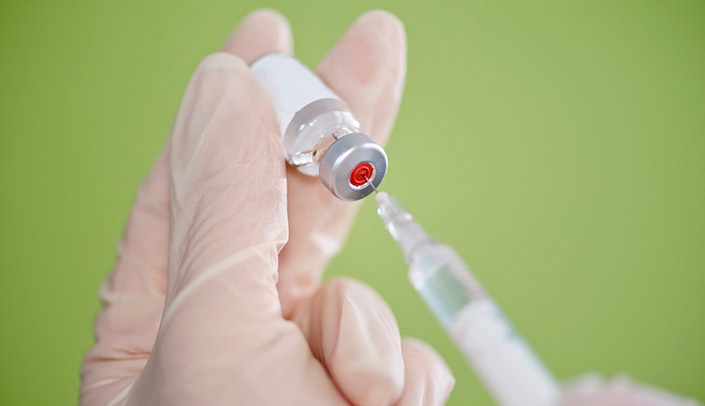Currently, any adult who wants a COVID-19 vaccination can get one. But just a few months ago, there was a lot of anxiety about how and when you might get your shot. And many UNMC graduate students were initially left out when their colleagues, other students, faculty and staff, became eligible for vaccines through campus-wide vaccination clinics.
Across the nation, people became eligible for vaccine access through specific criteria, like age or essential job status — and, while some UNMC graduate students qualified, about 300 initially did not.
But the university sprung into action to procure vaccination opportunities for these grad students.
“There was an intensive effort to get these graduate students vaccinated,” said Pamela Carmines, PhD, executive associate dean of graduate studies.
Dr. Carmines credited the very top of medical center leadership, UNMC Chancellor Jeffrey P. Gold, MD, and James Linder, MD, president and CEO of Nebraska Medicine, with making these graduate students a priority. Working with Nebraska Medicine, Graduate Studies set up a system in which graduate students would get leftover doses at the end of each campus clinic day.
Dr. Carmines and her team used an online program to prioritize the 25 or so students who had conditions that put them at higher risk. All others who signed up were randomized and entered into a lottery.
“We had no idea how many students would be able to get the vaccine on any given day,” Dr. Carmines said. “They wouldn’t know until the end of each clinic.
“Most days we sent 10 students to the clinic. Some days there were more than 10 doses left, and the clinic staff would call me. ‘Can you send over five more students in the next 15 minutes?'”
It took about two hours a day to manage, but UNMC and Graduate Studies, including Dele Davies, MD, dean for graduate studies, were determined to get shots into as many arms as possible.
“It was a lot of work,” Dr. Carmines said. “Every clinic day, Dr. Davies would want a report of how many students got a dose that day. One day, early in the process, 20 students were vaccinated — it was a cause for celebration! But on several days, zero students got the shot — frankly, those days were kind of depressing.
“One student I am aware of got sent to the clinic three times before they got the vaccine.”
But the project was a success. They were hoping they could get shots into the arms of 40 students. Instead, 180 graduate students received vaccines through this mechanism (many others were able to become vaccinated through other mechanisms). And, each one was counted as a win.
“I personally phoned each student when their name rose to the top of the list and told them when they could report to the vaccine clinic,” Dr. Carmines said. “They were happy to hear from me. They were especially happy after they got the vaccine, and several of them followed-up with nice emails or phone calls conveying appreciation for our work to get the vaccine to as many grad students as possible. It was absolutely a worthwhile effort!”
